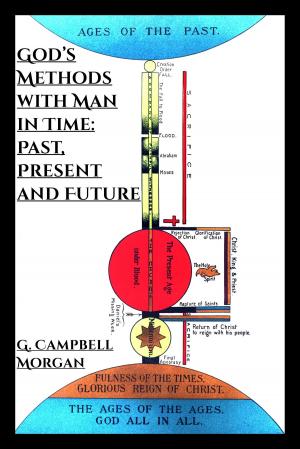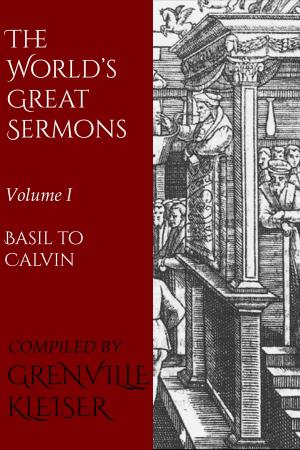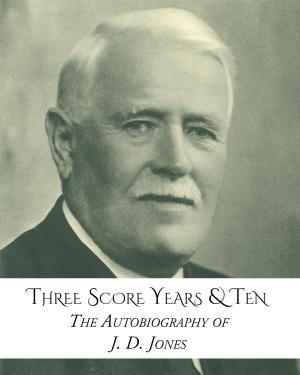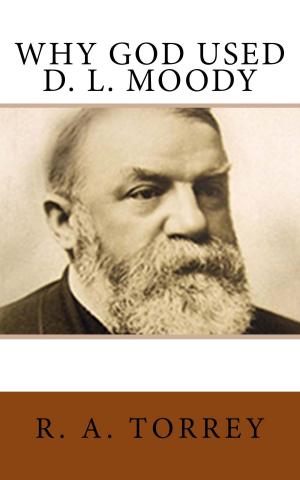Recent Criticism on the Book of Acts
Nonfiction, Religion & Spirituality, Bible & Bible Studies, Hermeneutics, New Testament, Criticism & Interpretation| Author: | J. Gresham Machen | ISBN: | 1230001988567 |
| Publisher: | CrossReach Publications | Publication: | November 3, 2017 |
| Imprint: | Language: | English |
| Author: | J. Gresham Machen |
| ISBN: | 1230001988567 |
| Publisher: | CrossReach Publications |
| Publication: | November 3, 2017 |
| Imprint: | |
| Language: | English |
Some years ago the world of New Testament scholarship was startled by the conversion of Adolf von Harnack[1] to the traditional view of the authorship of Luke-Acts. The book of Acts, Harnack concluded, was actually written by Luke, a companion of Paul. And what is more, it was written at about A.D. 60, or a little later, near the point of time where the narrative breaks off. Thus with regard to the date of the book the leading representative of modern “liberalism” had become more conservative than most of the “conservatives” themselves. Well might students of the New Testament ask, “Is Saul also among the prophets?”
Perhaps the most distinctive contribution of Harnack to the argument for the Lucan authorship of Acts was his establishment of the linguistic and stylistic unity of the book. The “we-sections”—the sections where the first person plural appears—are generally admitted to have been written by a companion of Paul. But as Harnack showed with especial clearness the we-sections are strikingly similar in language and style to the rest of the book. If, therefore, the book as a whole was written or compiled by an author different from the author of the we-sections, this author of the whole must at least have revised the we-section source which he was using, so as to impress upon it his own style. But if so, why did he not change the “we” to “they”? As coming from the pen of a later writer, who as everyone knew could not have been an eye-witness of the missionary journeys of Paul, the “we” was rank nonsense. It could only have been retained if the final author was a mere compiler, copying out his sources mechanically. But that the final author was not a mere compiler is proved by the literary unity of the book. If, therefore, the final author was in the we-sections using a source written by some one else, he has revised everything in his source except the one thing, the “we”, which most imperatively required revision.
[1] Lukas der Arzt, 1906; Die Apostelgeschichte, 1908; Neue Untersuchungen sur Apostelgeschichte imd zur Abfassiingszeit der synoptischen Evangelien, 1911.
Some years ago the world of New Testament scholarship was startled by the conversion of Adolf von Harnack[1] to the traditional view of the authorship of Luke-Acts. The book of Acts, Harnack concluded, was actually written by Luke, a companion of Paul. And what is more, it was written at about A.D. 60, or a little later, near the point of time where the narrative breaks off. Thus with regard to the date of the book the leading representative of modern “liberalism” had become more conservative than most of the “conservatives” themselves. Well might students of the New Testament ask, “Is Saul also among the prophets?”
Perhaps the most distinctive contribution of Harnack to the argument for the Lucan authorship of Acts was his establishment of the linguistic and stylistic unity of the book. The “we-sections”—the sections where the first person plural appears—are generally admitted to have been written by a companion of Paul. But as Harnack showed with especial clearness the we-sections are strikingly similar in language and style to the rest of the book. If, therefore, the book as a whole was written or compiled by an author different from the author of the we-sections, this author of the whole must at least have revised the we-section source which he was using, so as to impress upon it his own style. But if so, why did he not change the “we” to “they”? As coming from the pen of a later writer, who as everyone knew could not have been an eye-witness of the missionary journeys of Paul, the “we” was rank nonsense. It could only have been retained if the final author was a mere compiler, copying out his sources mechanically. But that the final author was not a mere compiler is proved by the literary unity of the book. If, therefore, the final author was in the we-sections using a source written by some one else, he has revised everything in his source except the one thing, the “we”, which most imperatively required revision.
[1] Lukas der Arzt, 1906; Die Apostelgeschichte, 1908; Neue Untersuchungen sur Apostelgeschichte imd zur Abfassiingszeit der synoptischen Evangelien, 1911.















